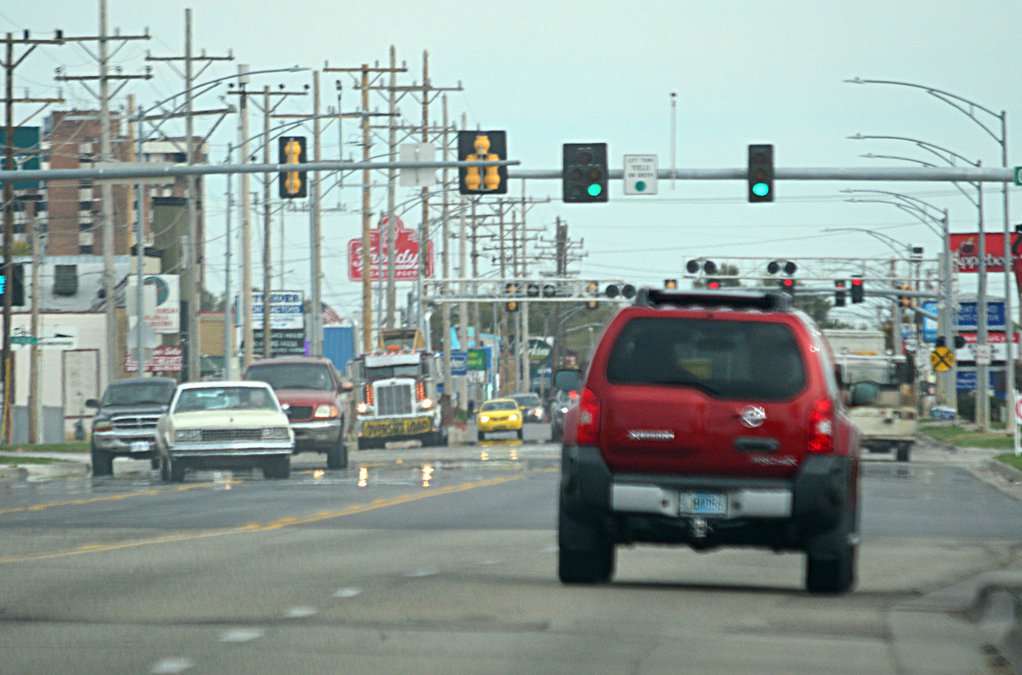With nearly 100 applications in the first round, including three local projects, the new highly competitive Cost-Share Program from the Kansas Department of Transportation is off to a strong start, KDOT announced Monday.
In total, KDOT received 92 applications with more than $92 million in local investment. In return, the applicants requested nearly $242 million from KDOT funds.
Among those are: A joint $865,000 project between Barton County and the City of Great Bend for the resurfacing of SW 40 Avenue between U.S. 56 and West Barton County Road, also known as Airport Road; a $400,000 county project to improve an intersection on K-4 just north of Redwing; and a city project totalling $1.1 million to resurface most of 10th Street.
“I am not surprised at the interest in the program,” said County Engineer Barry McManaman. “Local units of government stretch our budgeted funds to the best of our ability when prioritizing local roadway maintenance needs.”
The program lets local governments leverage their funds by offering local matching funds in the hopes of getting state money to cover the balance of project costs. The deadline for the applications was earlier this month.
“We may be able to afford a project that would otherwise be cost prohibitive or that would have to be addressed in smaller pieces without the state funds,” he said.
“It’s going to be interesting to see which projects are selected around the state,” McManaman said. Announcements are slated for the end of October.
The program provides financial help that pools state funding with local and private funding for projects related to job growth and retention, said Lindsey Douglas, KDOT deputy secretary of policy and fiscal affairs. “It will provide funding to local entities for construction projects that improve safety, increase the total transportation investment and help both rural and urban areas of the state improve their transportation system.”
The best of intentions
While welcomed, the program met with some confusion, McManaman said. There are essentially two pots of state money.
First, there is the one-time $50 million approved this fiscal year by the Legislature and Governor Laura Kelly. Two qualify for this, local government are required to put up a minimum of 25% non-state cash match.
Second, KDOT proposes this be an annual program with $11 million allocated each year. This requires a 15% non-state cash match with additional consideration given to project applications that commit more than the minimum.
And here lies the confusion, McManaman said. They submitted their applications not sure which funding opportunity they are eligible for.
If approved, local officials hope its for the smaller matching amount, but they just don’t know yet.
Playing catch-up
The idea for the cost-share effort is to help KDOT fund projects that languished after agency funds were siphoned away to make up shortfalls in the state budget. The shortages came about after former Gov. Sam Brownback-era tax cuts.
“While we knew there’s pent up demand for transportation investment, we’re overwhelmed with the level of interest this new program is garnering,” Douglas said.
“The new program demonstrates the importance of combining state and local funds to address transportation needs across Kansas,” Kelly said. “While we won’t be able to approve all applications representing requests totaling more than a quarter of a billion dollars, the high interest proves it’s time to develop a new transportation plan for the state.”
All transportation projects are eligible, including roadway (on and off the state system), rail, airport, bicycle/pedestrian and public transit. They must be construction projects that address an important transportation need such as promoting safety, improving access or mobility, improving condition or relieving congestion.
Applications will be accepted on an ongoing basis and will be reviewed twice per year, in October and March. Selection criteria will include consideration of projects that meet program objectives, eligibility categories and requirements. Geographic distribution will also be considered during project selection.





